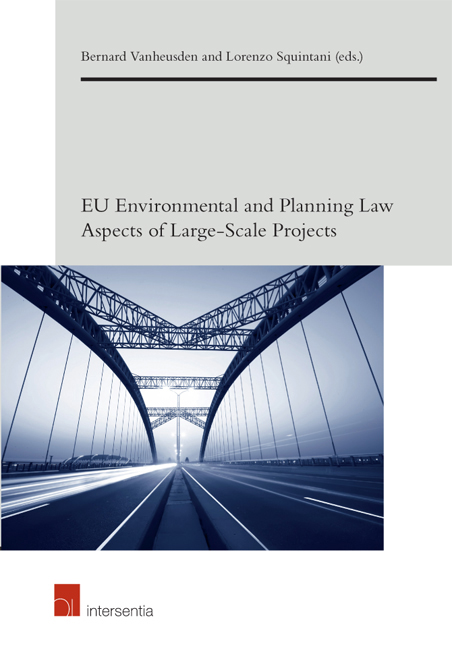Conclusion: Reconciling Conflicting Values: A Call For Research on Instruments to Achieve Quasi-Sustainability
Published online by Cambridge University Press: 21 September 2018
Summary
Sustainable development and sustainability are in this second EELF Conference book central terms that recur in the contributions. Unfortunately, various contributions also indicate that this goal of sustainability is often hampered by conflicting values. As already stated in the introduction to the first EELF Conference book, ‘[f]ocusing on the European Union, the Union itself and each of its Member States has to balance economic welfare, social welfare and environmental welfare, i.e. they have to find “sustainability”’. At first glance, sustainable development ranks high in the list of objectives of the European Union. Indeed, the European Union is ‘determined to promote economic and social progress for their peoples, taking into account the principle of sustainable development’. More explicitly, ‘[i]t shall work for the sustainable development of Europe based on balanced economic growth and price stability, a highly competitive social market economy, aiming at full employment and social progress, and a high level of protection and improvement of the quality of the environment’ and ‘[i]t shall contribute to peace, security, the sustainable development of the Earth’.
A closer reading of the Treaties, however, reveals that this policy goal is not operationalised by a specific legal framework. Its relevance in the shaping of the decision- making process at EU level is mediated by the principle of integration. First, Article 7 Treaty on the Functioning of the European Union (TFEU) states that ‘[t]he Union shall ensure consistency between its policies and activities, taking all of its objectives into account and in accordance with the principle of conferral of powers.’ Second, Article 11 TFEU states that ‘[e]nvironmental protection requirements must be integrated into the definition and implementation of the Union's policies and activities, in particular with a view to promoting sustainable development’. If we define sustainable development as ‘development that meets the needs of the present without compromising the ability of future generations to meet their own needs’, it can be doubted whether Articles 7 and 11 TFEU ensure the achievement of sustainable development under European Union law. Article 11 TFEU only focuses on one of the three ‘P's of the sustainability paradigm, namely the planet, and Article 7 TFEU makes the integration of all EU objectives, including sustainable development, conditional upon the fulfilment of the principle of conferral.
- Type
- Chapter
- Information
- Publisher: IntersentiaPrint publication year: 2016



